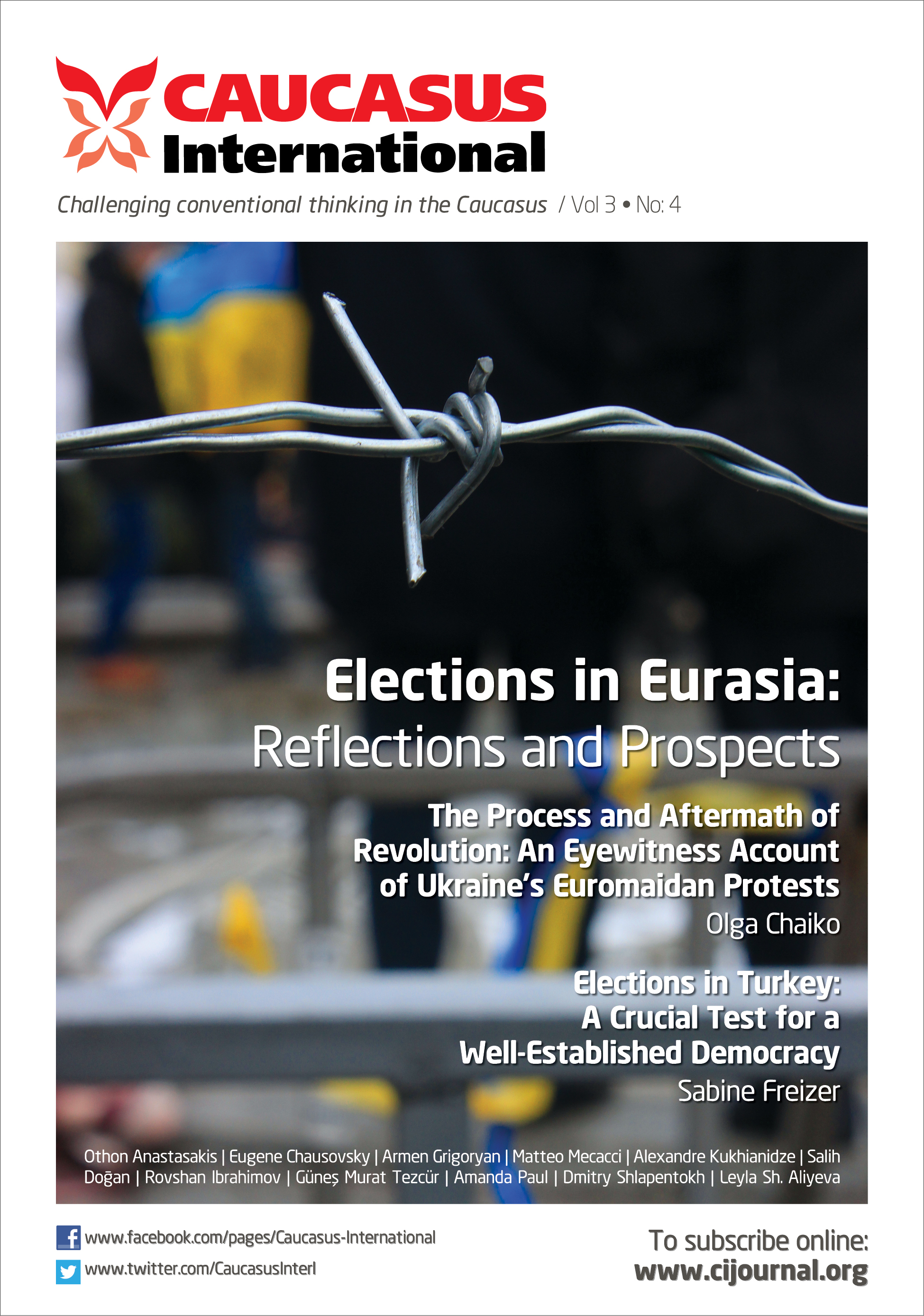Elections in the South Caucasus: Reflections on Economic and Security Affairs
This article explores the significance of the presidential elections held in Armenia, Azerbaijan, and Georgia in 2013 within their broader geopolitical contexts. While the elections were important in terms of the political change – or continuity – that they reinforced, the article argues that they were not a primary driving force for change in the region. Rather, it is the larger trends that are having the greatest impact on the political, economic, and security evolution of the region – most notably Russia’s resurgence in the Caucasus, Turkey’s renewed focus on becoming an active regional player, and the potential implications of negotiations between the U.S. and Iran. In line with historical patterns, external players continue to shape the regional dynamic in the Caucasus as much as internal ones do, if not more so. The elections in Armenia, Azerbaijan, and Georgia – and their largely predictable outcomes – are a testament to the relative political stability of the Caucasus compared to the situation 20 or even 10 years ago. Yet the geopolitical forces shaping the region remain as dynamic as ever, portending significant changes in the months and years ahead.
Latest news
- 03/17/2020 Call for Submission: “Non-Alignment Movement and Its Perspective in International Affairs”. Deadline: 1 July 2020 2626 views
Popular articles
- 02/24/2020 The Role of Irredentism in Russia’s Foreign Policy 2536 views
- 02/24/2020 Construction of sub-national identity vis-à-vis parent state: Gagauz case in Moldova 2218 views
- 02/24/2020 The Conflict in Ukraine - The Geopolitics of Separatism and Divergent Identities (Commentary) 2073 views
- 02/24/2020 The Role of the Soviet Past in Contemporary Georgia 2044 views





